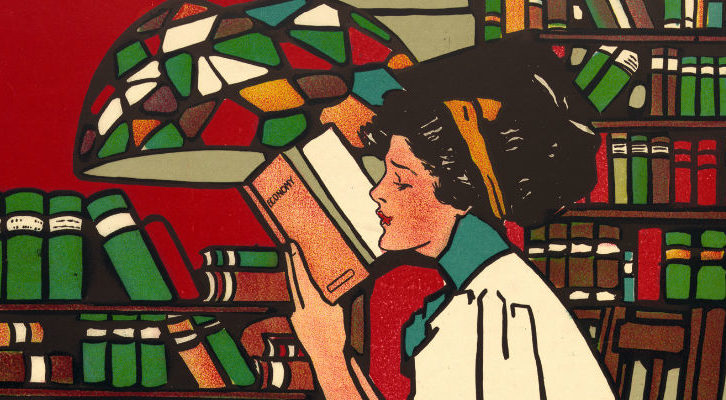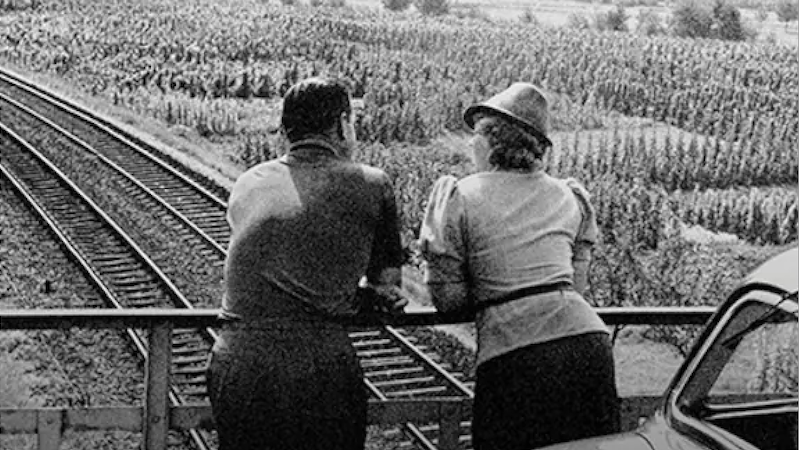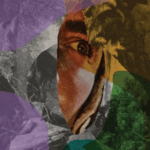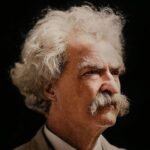In 2012, Joseph Fink and Jeffrey Cranor launched Welcome to Night Vale and changed the podcasting game forever. A twice-monthly program covering the insane existence of one small desert town, their show provided an entirely new perspective on the comedy-horror genre. In the town of Night Vale, every conspiracy theory is true.
Since its launch, Fink and Cranor have created other podcasts under the Welcome to Night Vale Presents… umbrella, including Fink’s incredibly disturbing three-season serial about a trucker (Keisha Lewis) searching for her wife called Alice Isn’t Dead. Gone, for the most part, is the humor wormed into Night Vale, and in its place we instead find the horror significantly intensified.
Now Alice Isn’t Dead is a novel from Harper Perennial. To celebrate its release, Joseph Fink was kind enough to answer a few questions over the phone…
Max Booth III: How was the initial idea of the podcast, Alice Isn’t Dead, conceived?
Joseph Fink: I have to start there with Welcome to Night Vale, the first podcast we made. We all came out of theater, the people making Night Vale—so it was an easy transition for us to start doing live shows. We had a lot of knowledge on how to do a live show performance. We actually started doing live shows in September 2013, so we just recently passed the five-year anniversary of touring. And we quickly started touring on a fairly large scale at this point. We’ve done well over three hundred shows in thirty-five states and seventeen countries. And so, you know, we quickly found ourselves in this weird position as writers of having a kind of touring performer’s life.
I spent hours and hours sitting in a van. And I’d never seen much of the country, I’d been a few places, but suddenly I had driven most of it. I sat in the van and looked out and I’d been to almost every city anyone could name in the country. So, I just started writing down these notes while I was traveling of things I’d seen and things that had happened. At one of these live shows I wrote a monologue for Jasika Nicole, who’s the main performer in Alice Isn’t Dead, but she also plays a character in Welcome to Night Vale.
MB: Dana, right?
JF: Yes. So, I wrote her a monologue for a live show in Los Angeles. She showed up to the theater, she’d only had time to look through it once, and then she went out on stage and just absolutely nailed it, just performed it so well. And I knew immediately that I wanted to write more stuff for her. So the idea of the show really came out of these notes that I had from driving all over the country and wanting to write something for Jasika. The story elements came later to serve those two things.
“Horror can often feel more real than a realistic drama, because instead of showing you what the world is, it shows you how it is to experience the world.”MB: I know a major theme in the book is anxiety. Keisha has it in a big way. It’s refreshing to have a protagonist not described as some macho action hero who isn’t afraid of everything. In the book, Keisha seems to be afraid of almost everything, and it’s being afraid that makes her act like such a badass. There’s a great line from the book that goes: “It wasn’t that she wasn’t afraid. The only way to be brave is to first be afraid.” I was hoping you could talk a bit about Keisha, and how anxiety has crafted not just her, but the whole book maybe.
JF: Anxiety has kind of informed everything I’ve written. Welcome to Night Vale doesn’t have anxiety directly, in terms of characters with anxiety, but it is very much a reflection of an anxious person’s mind. I can’t speak for everyone with anxiety, but I can describe exactly how I experience it. And it sits well—you know, I deeply love the horror genre. I watch a lot of horror movies, and I find that horror can often be a very realistic way of expressing how the world feels, that horror can often feel more real than a realistic drama, because instead of showing you what the world is, it shows you how it is to experience the world. It made some sense to me to put someone with that kind of anxiety into a horror story because, yes, monsters are scary, but if you experience the entire world that’s scary then you might be better prepared to cope with the fear of encountering monsters.
MB: Yeah, that makes a lot of sense. The way you handle it is so authentic feeling. It’s a really powerful book and Keisha is someone nobody’s going to forget. This is your first solo novel, correct? The other books you did with Jeffrey [Cranor].
JF: Yes.
MB: I was just wondering how the writing process changed from collaborating to going the solo route.
JF: That’s an interesting question, because in a lot of ways the writing process didn’t change. Jeffrey and I don’t sit and write in the same room. We kind of have conversations, then we go our separate ways and write. On a day-to-day level, writing is writing. It’s sitting at a computer for hours and just, you know, hitting your word goals, every day, for weeks. It’s a very slow and boring process. The main thing is I’ve been writing with Jeffrey since…it has to have been eight years now. Jeffrey and I have this very strong mutual trust and understanding with our work that allows there to be a little bit of a safety net when we write together. You can write a thing that you know isn’t quite there yet, but you can kind of be like, ‘Well, when Jeffrey takes a look at this, we’ll fix it,’ or vice versa. There’s a little bit of a sense of, ‘I don’t have to be the one to, on my own, get it over the finish line.’
With Alice Isn’t Dead, obviously I didn’t have that. Eventually, I had to reach a point just on my own that I thought it was good enough and move on from there. And that’s scary and that’s hard, but also as an artist I have a strong belief that you always need to be seeking out things that are difficult. Once you get good at something, it’s important to move on and try to find something that you’re less good at and work on that.
MB: When did you realize that these shows, beginning with Welcome to Night Vale, could also become novels? Did someone reach out to you or did you already have the idea to expand them beyond the podcasts?
JF: I’ve wanted to write novels since I understood what they were. When I was about three or four, I first wanted to be a storyteller. I don’t know if you’ve ever seen them at children’s fairs or whatever—storytellers—and then when I learned that wasn’t really a career but there was this thing called a writer, I immediately switched to that. I’ve wanted to write books pretty much since I was four years old, and that’s never really wavered. When Welcome to Night Vale blew up, we suddenly had popular Internet thing, and when you have popular Internet thing, you suddenly get a million offers from all sorts of people being like, ‘Hey, can I make money from your popular Internet thing?’ And among those were publishers.
Jeffrey and I had both wanted to write a novel, and we wanted it to be artistically interesting for us, so we didn’t want to just do, like, a coffee table book of Night Vale art, and we didn’t want to do a novelization of Welcome to Night Vale episodes or whatever. We wanted to write a new thing. We wanted to write a novel that took place in this world, which we were qualified to do. If you add up all the episodes of Welcome to Night Vale we’ve written, we’ve written several novels’ worth of material in that world. With Harper Perennial, we found people who were just as excited as us about the idea of us writing a novel. We talked to some publishers who just had no interest in that. They wanted to rush out a book that was like, ‘Here’s a map of Night Vale, and here’s some fan art,’ and that just didn’t interest us. But Harper Perennial understood what we wanted to do and were excited about it.
“Both Welcome to Night Vale and Alice Isn’t Dead are written essentially in prose format…So it’s not that much of a stretch to transition into novels set in the same world.”Both Welcome to Night Vale and Alice Isn’t Dead are written essentially in prose format—they are performance pieces, but they are almost entirely monologues. If you looked at the scripts, it would look like a page of prose, it doesn’t really have much of the look of a script. So it’s not that much of a stretch to transition into novels set in the same world.
MB: Do you envision all of these shows under the Welcome to Night Vale Presents name—like Night Vale, The Orbiting Human Circus (Of the Air), Alice—existing within the same universe?
JF: No. To me these are all stories that are only connected by the people putting them out.
MB: A couple of years ago I caught a live performance of Night Valein San Antonio, and it was fun as hell. Now, I don’t think so but maybe I’m wrong, have you done many live shows with Alice Isn’t Dead?
JF: I have. We did a live show at PodCon in Seattle last December, and then this April we did a live show in Los Angeles. We actually released the Los Angeles live show onto the Alicefeed before this current season. It’s always important to us that live shows are able to be understood by people who have never heard of the podcast, so it’s a standalone story that kind of uses a lot of the weird stuff around L.A. It’s a lot of fun. I don’t have a ton of time to write Alice live shows and Jasika doesn’t have a ton of time to perform them, so we haven’t done it much, but it’s been fun both times we’ve done it.
MB: And you have a bunch of readings coming up, right? Do you have anything special planned for those?
JF: Yeah, I’m doing a…oh, God, I think it’s now an eighteen-city book tour. Each of those is an in-conversation with a different person. Some of those people I can’t believe I get to have conversations with. The book tour format is usually we talk for probably forty-five minutes with the person, I do a reading, I take some questions from the audience, then I do a signing.
MB: That should be a lot of fun. I’m hoping to catch you in Austin at BookPeople [on November 8th].
JF: Awesome, yeah, that’s in-conversation with Deb Olin Unferth, who’s one of my favorite writers.
MB: When I discovered Alice Isn’t Dead, I listened to all of season one while driving overnight from Texas to Indiana, and I’m convinced that’s the only way anyone should listen to the podcast. At a certain point sleep-deprivation kind of screws with your mind, and the mood the podcast gives you is incomparable. So, I was wondering—what’s the strangest road trip you’ve ever gone on?
JF: It’s hard to answer that question because my life has been one continuous road trip for five years now. Life is always kind of weird when you’re on the road. It’s a weird job to put on a show in a different city every night with your friends for five years. So, it’s been the weirdest five-year road trip.
MB: Let’s hope it keeps going.



















